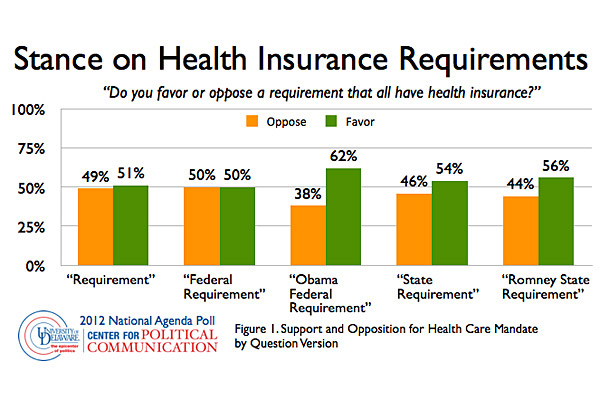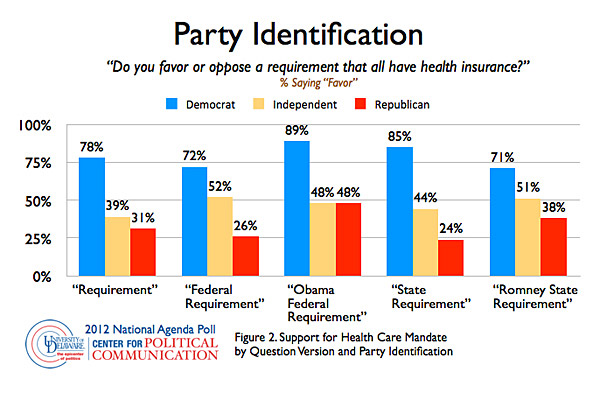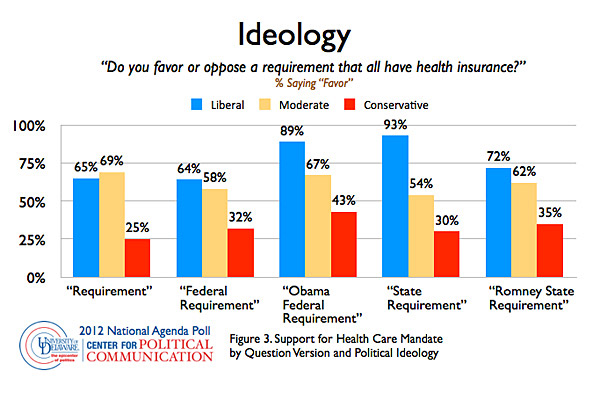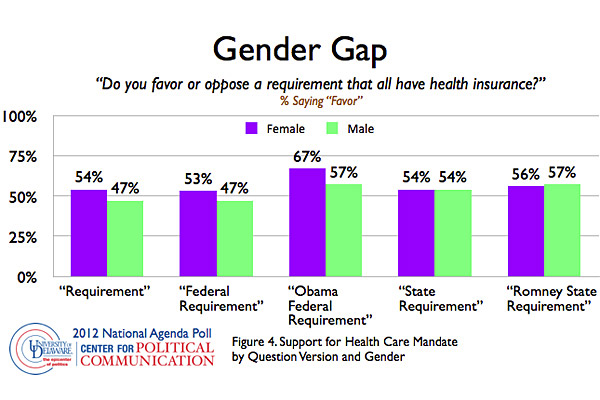Mandate divisions
UD national survey shows public deeply divided on health insurance mandate
4:05 p.m., June 22, 2012--As the United States Supreme Court prepares to rule on the constitutionality of the 2010 health care law, a new National Agenda Opinion Poll by the University of Delaware’s Center for Political Communication reveals Americans are divided along party and ideology lines on a key provision of the law. Democrats and liberals overwhelmingly favor insurance mandates, whereas large majorities of Republicans and conservatives oppose them.
The national telephone survey of 906 Americans was conducted by the Center for Political Communication from May 20 to June 6. Professors David C. Wilson and Paul Brewer supervised the study.
Research Stories
Chronic wounds
Prof. Heck's legacy
Wilson, the center’s coordinator for public opinion initiatives, said “the results suggest President Obama may actually have more political capital for his health insurance requirement than is widely reported.”
The survey asked how much respondents favored or opposed a health insurance mandate using five different wordings. Half of respondents support a mandate when it is presented as a “requirement” or “a federal requirement.” In contrast, 62 percent support “the federal requirement, signed by Obama.”
Two other versions asking about “a state requirement” (supported by 54 percent) or “the state requirement, signed by former Massachusetts governor Mitt Romney” (supported by 56 percent) receive lower support than the federal version mentioning Obama.
A closer look at the results reveals wide gaps between Republicans and Democrats and between liberals and conservatives on all five versions of the question. For each version, support among Democrats and liberals is much greater than support among Republicans and conservatives.
Democrats and liberals are more likely to support a state requirement than a federal requirement, but when Romney’s name is mentioned they support a state requirement less. Republicans and conservatives tend to support requirements by Obama and Romney more than the generic idea of a state or federal requirement without a political figure’s name attached.
“The findings among Republicans and conservatives suggest they do not draw the same distinction between state and federal mandates that Romney has drawn in his campaign,” Wilson said.
Researchers also found women are significantly more likely to support health insurance requirements than men, particularly at the federal level. Women show their strongest support for a federal health care requirement signed by Obama. They support state level requirements at the same level as men, whether Romney is mentioned or not.
Brewer, the center’s associate director for research, said, “No matter what the Supreme Court does, its ruling will go against the views of a sizable portion of the public. Public opinion about a mandate is deeply polarized along partisan and ideological lines.”
About the study
The National Agenda Opinion Project research was funded by the University of Delaware’s Center for Political Communication.
Results are based on telephone interviews with a nationally representative sample of 906 adults living in the continental United States. Telephone interviews were carried out using a dual sampling frame consisting of both landline (n=551) and cell phone (n=355, including 158 without a landline phone) extensions.
The survey was managed by Princeton Survey Research Associates International (PSRAI), and the data were collected through English only interviews by Princeton Data Source.
The data were collected from May 30 to June 5, 2012. Statistical results are weighted to correct known demographic discrepancies. The margin of sampling error for the complete set of weighted data is ± 3.9 percentage points. This estimate includes a calculated “design effect.”
Readers should be aware that in addition to sampling error, question wording and practical difficulties in conducting surveys can introduce error or bias into the findings of public opinion polls. Click here to see the topline results.















